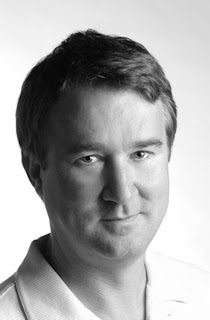Highlights from Day 2 of the conference using the Tweets made by myself and others. To review the Twittering activity during the forum, go here on Twitter Search. (Search: #ecsf09):
1) russhmeyer: "'We' is the pronoun for the internet, not 'me'".-A.Rasiej, TechPresident.com
The first session of the day was about building the Obama brand. Andrew Rasiej believes that, over and above all the political dynamics, Obama won because he and his team understood the rules of the game for the Internet, especially that its language is about "we" not "me." Yes, we can.
2) jweinberger: #ecsf09 Barr: Obama won because: right people, right product, right time, flawless execution
A different perspective on why he won came from H. Buford Barr of the Leavey School of Business at Santa Clara University. He believes that it was more of a textbook campaign: A good strategy, well-executed. "Now I've got something to prove the textbook is right."
3) russhmeyer: boutique hotels=magazines...interesting source for marketing inspiration. - C Conley
Chip Conley is founder and CEO of Joie de Vivre Hospitality, California's largest boutique hotel company. As he said: His original target market was: "Chip's friends who used to sleep on my couch." But, once he got started, he found his inspiration from magazines. His first hotel: Phoenix Hotel was inspired, for example, by Rolling Stone. Others have been inspired by Simple, The Economist and Sports Illustrated.
4) martinjbishop:The employee track up the Maslow pyramid: From Job to Career to Calling
Conley is a devout follower of Maslow and the hierarchy of needs, using it as the organizing principle for the positioning of his hotels and also as a way to think about employee engagement. His goal is to get employees to think of work as more as a calling and less as a job or even a career. Customer experience can also be translated to this scale: "meets expectations" to "meets desires" to "meets unrecognized needs" (Conley's book where he explains this in more detail: Peak http://tinyurl.com/2uxyrd)
5) martinjbishop: Who knows how the consumer will react? Why are they buying puppy treats at a time like this? http://www.pupperoni.com/
The next panel explored the relationship between CEOs and CMOs. In his introductory remarks, William Pearce of Del Monte threw in this unexpected fact. Demand for puppy treats has gone through the roof since the recession started. Why? Who knows?
6) martinjbishop: Zappos has taken some of the things at the bottom of the Maslow pyramid and made them differentiating (e.g. warehousing)
Tony Hsieh, CEO of Zappos, declared himself a fan of Chip Conley and also uses Maslow principles in managing the company. What's interesting is that he's taken things that are normally considered costs-that-must-be-controlled and made them into points of differentiation. For example, Zappos runs its warehouses 24/7 which is not efficient but gives them an edge in customer service.
7) martinjbishop: The Zappos offer to pay people to leave after training is designed to get rid of people who are only there for the paycheck
Hsieh also talked about his famous policy of giving people the chance to quit for money after the training period. He wants people who are there for more than the paycheck. There's also some nice cognitive dissonance going on for those that stay. They have to rationalize the fact that they didn't take the money.
8) martinjbishop: The only way you win an argument against a person with a higher title is to "have a fact" (Kumar/Frito Lay)
Jay Kumar of Frito-Lay made the point that when two people are disagreeing with each other, the winner will generally be the one with the bigger title unless the lower-titled person has some compelling facts at hand. That, he pointed out, is why CMOs need to invest in getting facts if they are be persuasive in the boardroom.
9) TrevorWade: Virgin america goes to great lengths to connect with customers, stories are as remarkable as FedEx
The last speaker at the Forum was Porter Gale of Virgin America. Like Zappos, Virgin America is very plugged into what its customers are thinking and saying in real time. Porter shared a couple of stories where they had actually been at the gate of an incoming flight to talk to and help out customers who had complained about problems en route. Even as I tweeted about Virgin America at the conference, they started following me. Sort of GDR tactics made good.
10) johngerzema: My Economist presentation is posted here http://bit.ly/cnflH The slideshare has the links, but better graphics by dowloading.
John Gerzema, who spoke on Day 1 about avoiding the looming crisis in brand value, made his presentation available on this link. Well worth a read.
Wednesday, March 18, 2009
Economist Marketing Forum (Day Two) Top 10 round-up
Subscribe to:
Post Comments (Atom)
 )
)

No comments:
Post a Comment